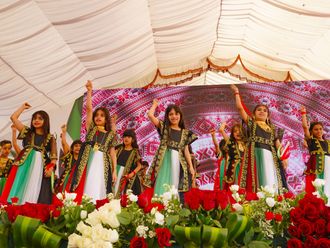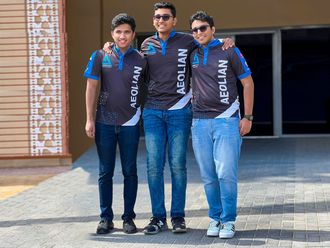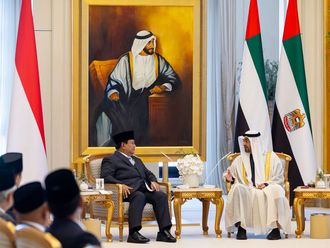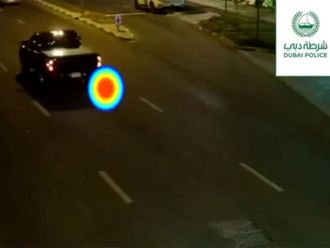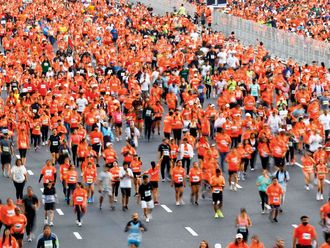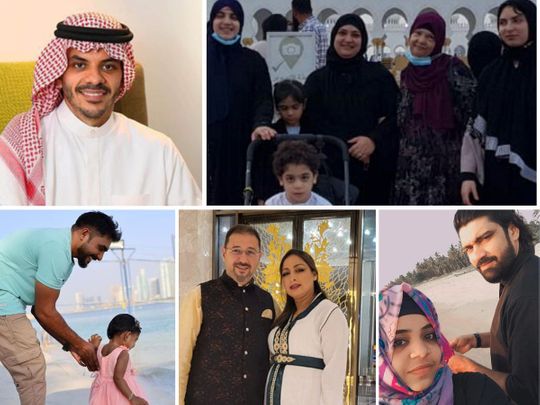
Abu Dhabi: With Eid Al Fitr approaching, residents are all set for the start of the Eid holidays. A time reserved for prayer and gratitude, Eid Al Fitr is significant for Muslims around the world.
This year, Eid Al Fitr is scheduled to be celebrated either on Friday (April 21) or Saturday (April 22) with the UAE’s moon-sighting committee set to meet and confirm the exact date on Thursday, April 20.
During Eid Al Fitr, Muslims celebrate the end of Ramadan by taking part in numerous traditions. Prayers, special dishes, and customs become part of family’s traditions for the holiday.
The UAE’s rich diversity and multicultural landscape offer a unique opportunity to witness a number of traditions. Gulf News spoke to a number of families who shared the stories behind their particular Eid customs.
Hiba Al Minshawi
Hiba Al Minshawi, 47, is an Egyptian special needs teacher. She is married and has four children aged between 11 and 17 years old. Ahead of Eid, Al Minshawi purchases a fancy outfit and shoes for herself, as well as new clothes and shoes for her children.
She also books salon appointments for herself. During Eid itself, Al Minshawi loves baking a kind of biscuit treat known as “petit four”, as well as “ghoriba”, a type of shortbread cookie.
“My family and I wake up early to have breakfast together and then elders begin giving out Eidiya,” Al Minshawi said.
Eidiya is a well-known Eid tradition in the Muslim world that many families uphold, and consists of giving out money to children and sometimes young adults as a form of celebration.
Later, Al Minshawi and her family go out to shopping malls, and usually eat out as well. If not, she cooks up fish and various seafoods.
READ MORE
- Eid Al Fitr travel: These are the top holiday spots for UAE residents despite visa delays, sky-high fares
- Eid Al Fitr 2023: UAE residents opt for visa-free travel destinations ahead of long weekend, deals start at Dh3,000
- Eid 2023: Make those holiday plans early as airfares from UAE already up 10-20% for March-April
Faisal Nathamkodan
Nathamkodan is a 35-year-old Kerala native, currently living and working in Abu Dhabi as a chauffeur. He is married and has a seven-year-old daughter. Both his wife and daughter live in Kerala.
Ahead of the holiday, Nathamkodan said he also makes it a point to get himself a celebratory Eid outfit.
“During Eid, the way I communicate and celebrate with my family is through video and phone calls,” Nathamkodan told Gulf News.
Afterwards, he and his friends get together and cook a special kind of “biryani” – a rice-based dish with protein – for Eid. For dessert, he prepares “payasam”, a type of vermicelli-based pudding and neyappam, a rice-based sweet fritter.
Aziz Al Harbi
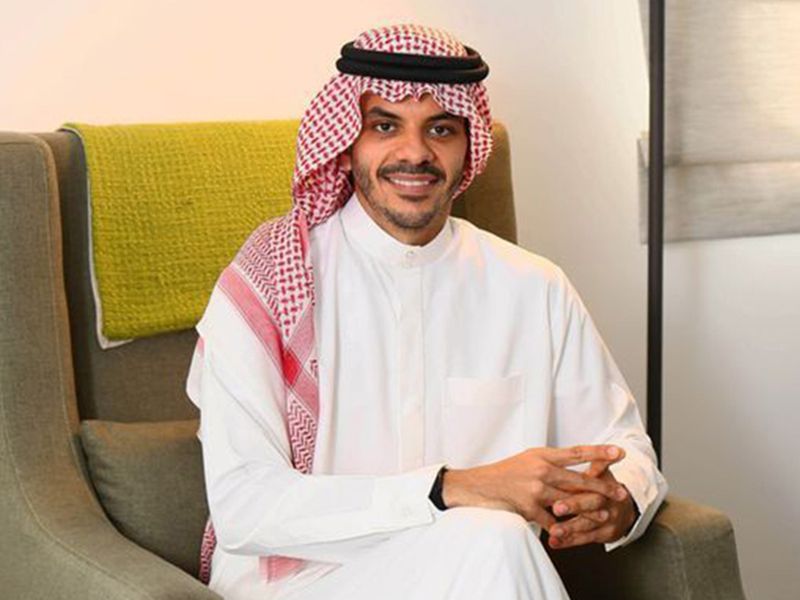
For Saudi expat Aziz Al Harbi, CEO of RoboStores, Eid is a time for reflection, celebration, and community. It is a time to remember the importance of faith, family, and friends, and to express gratitude for the blessings in our lives.
“During Eid, we dress up in nice or new clothing and exchange gifts with loved ones. We gather together and enjoy a meal and each other’s company. It is also a time to donate money, food or whatever you can to the needy. Eid Muabarak!”
Iman Yusra Huntash
Iman Huntash, 38, is a shadow teacher from Egypt. Huntash is married and has five children aged from three to 15 years old.
“Eid Al Fitr holds a special place in my heart. Ahead of the holiday, I am now shopping for Eid clothing, gifts, cakes, desserts, and chocolates,” Huntash said.
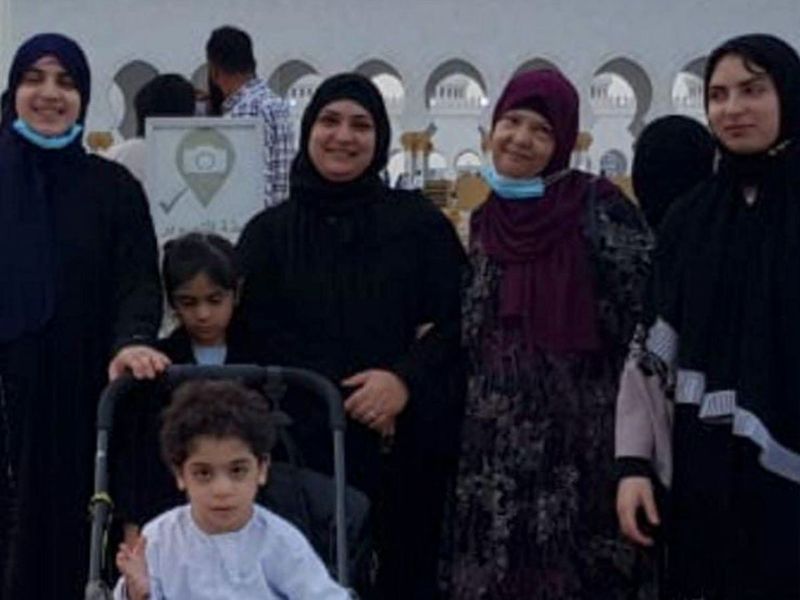
“One of the usual rituals of Eid in Egypt is to first eat dates before going for prayer, and then go home and eat cake with tea. For lunch, we eat ‘herring’, or ‘koshari’, a rice and pasta-based dish with protein,” she added.
Huntash and her extended also family visit one another over Eid, and share Eidiya with the children. They also exchange presents and give out Zakat or alms. She and her family also attend Eid prayers.
“Among our customs during Eid is visiting neighbours, taking walks in parks, and eating out, and heading out for some entertainment,” she said.
Samsudeen Pilakal
Samsudeen Pilakal, 28, is a chauffeur from Kerala, India. He is married and has a three-year-old daughter. His family resides in India whilst he moved to Abu Dhabi for work.
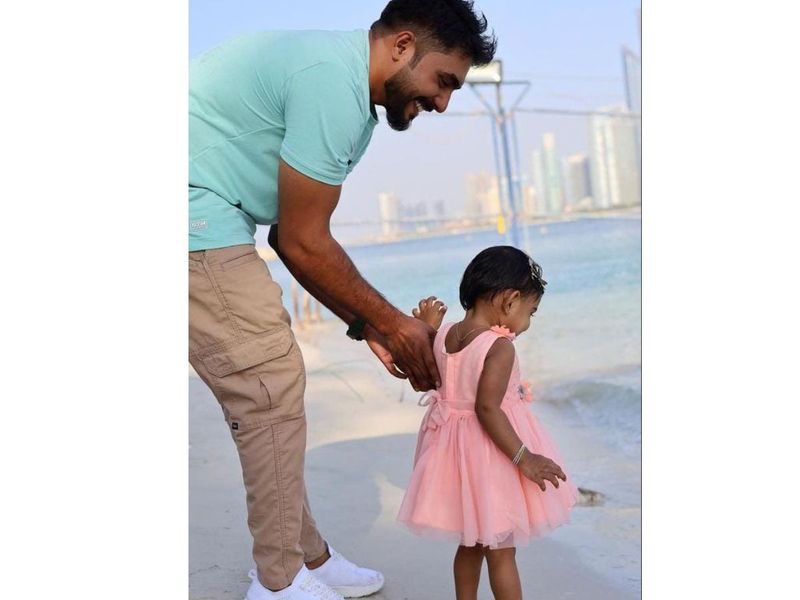
“I will celebrate this Eid with my friends and roommates. As my family is not here, I can’t join them, but they will gather at home. Of course, I will dress up in a festive white shirt and a traditional Indian white wrapped legging called ‘dhoti’. We will make chicken ‘biriyani’ as an Eid special, and will serve ‘payasam’ also,” he said.
Dr Adel Al Sisi
Dr. Adel Al Sisi, Chief Medical Officer and Consultant Intensive Care Unit, Prime Hospital, said: “Eid is about sharing, a celebration of the successful completion of the holy month. We also teach our children the essence of Ramadan and we gift them Eidi to encourage them to share and have a successful Ramadan the following year.
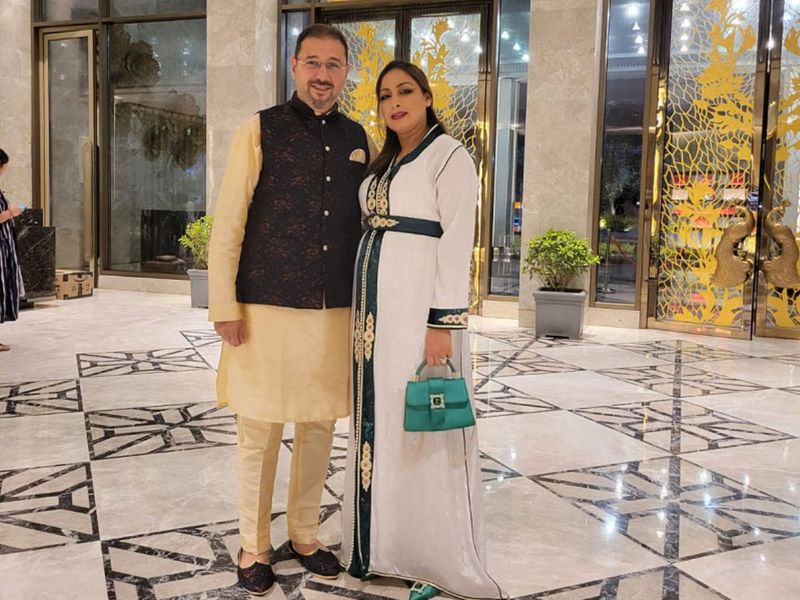
“This year, we will be hosting friends over. We will prepare special dishes. We wear traditional clothes to celebrate Eid. On the first day of Eid, the children and I will go to the mosque for prayers. We come back for a good breakfast and celebrate Eid Al Fitr.”
Niaz Ahmed
Indian expat Niaz Ahmed, Marketing Manager, Kanoo Industrial and Energy, said Eid is all about a culmination of the holy month. “It is a time to celebrate, meet family, friends, and enjoy delectable cuisine. The children look forward to it to collect monetary gifts called Eidi.”
Ahmed said in the UAE, the first day of Eid for his family starts with morning prayers. “We enjoy a heavy breakfast with family. Later, we gather with friends and together we cook special Eid food. In the evenings we go out visiting friends. Back in India, however, the celebrations are different with a stream of visitors coming home throughout the day. Breakfast, lunch and dinner are with all close friends and family.”
This year, Ahmed is having a special Eid Al Fitr. “My parents are visiting us. We will make it memorable with friends.”


